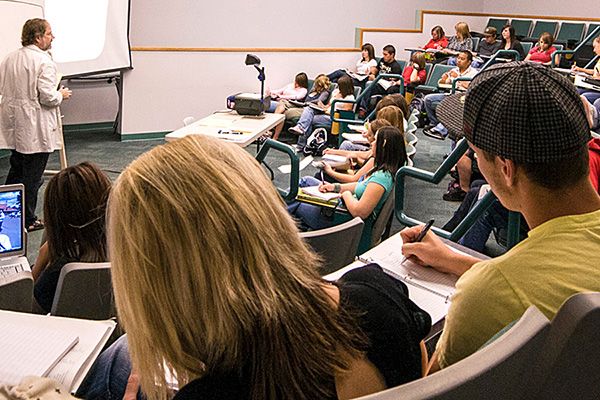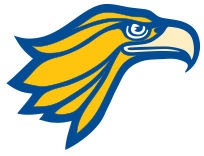|
Section: 2600 – Student Services |
Last Review Date: 12/1/2023 |
|
Responsible Area: Vice President for Learning and Student Services |
Effective Date: 12/1/2023 |
|
Policy/policies the procedure is based on: 1046 |
Procedures that may be impacted by revisions: 2110, 2601 |
|
Revision History: New 12/01/2023 |
|
1.0 Scope
This procedure applies to non-academic conduct that occurs during educational programs and activities and that take place on Northland Pioneer College (NPC) premises or at college-sponsored events. This procedure applies only to students, as defined in 3.8, of Northland Pioneer College.
This procedure can also be applied to instances of off-campus alleged misconduct that effectively deprives someone of access to the college’s educational programs. NPC may also extend jurisdiction to off-campus and/or online misconduct.
Regardless of where the misconduct occurs, NPC will address notice/complaints to determine whether the misconduct occurred in the context of college employment or an educational program or activity and/or has continuing effects on a campus program or activity, or in an off-campus sponsored program or activity. For clarification, all misconduct is considered alleged, until the student is found to have committed the misconduct.
2.0 Purpose
The college offers each of its students the freedom to learn and to enjoy the benefits and rewards of college life. In return, the college expects each student to assume the responsibilities that accompany these freedoms. Northland Pioneer College (NPC) has adopted the following Student Non-Academic Code of Conduct and Discipline.
3.0 Definitions
3.1 College Community – any person who falls into the following groups: student, faculty member, college official or any other person employed by the college. The Administrator shall determine a person's status in a particular situation.
3.3 College Official – any person employed by the college, performing assigned administrative or professional responsibilities pursuant to this code.
3.3 College Premises – includes all land, building, facilities, online platforms, and other property in the possession of or owned, used, or controlled by the college.
3.4 Days – College Business Days as identified in the college catalog; all timelines may be extended by mutual agreement of involved parties or an exception to this timeframe may be made at the sole discretion of the Director of Student Services or designee.
3.5 Director of Student Services – College administrator designated by the Vice President for Learning and Student Services for oversight and administration of all violations of the Student Non-Academic Code of Conduct.
3.6 Educational program or activity – includes locations, events, or circumstances where Northland Pioneer College exercises control. Educational programs and activities also include any programs or activities that take place at locations owned or controlled by a student organization that is officially recognized by Northland Pioneer College.
3.7 Faculty Member – any person hired by the college to conduct instruction.
3.8 Student – any person participating in or attempting to participate in educational programs or activities provided by NPC.
3.9 Student Conduct Hearing Panel – A panel assembled by the Director of Student Services or designee for the purpose of reviewing the alleged misconduct and determining a sanction.
3.10 VPLSS: The Vice President for Learning and Student Services (VPLSS), or other college administrator designated by the President for oversight and administration of both the learning and student services divisions/departments.
4.0 Procedure
4.1 Prescribed Conduct
a. Conduct – Rules and Regulations
- Attempted or actual theft of and/or damage to property of the college or a member of the college community.
- Any physical abuse, verbal abuse, threats, intimidation, harassment, coercion, and/or conduct that threatens or endangers the health or safety of any person. Conduct that falls within the scope of Procedure 2110 shall be addressed in accordance with Procedure 2110.
- Conduct which is disorderly, lewd or indecent; breach of the peace; or aiding, abetting or procuring another person to breach the peace on college premises or at activities sponsored by or participated in by the college.
- Illegal manufacture, use, possession, or distribution of narcotics or other controlled substances except as expressly permitted by law. In the event of a conflict between state and federal law, federal law shall supersede state law.
- Use, possession, or distribution of alcoholic beverages or public intoxication.
- Unauthorized possession, duplication, or use of keys to any college premises or unauthorized entry to or use of college premises.
- Illegal or unauthorized possession of firearms, explosives, other weapons, or dangerous chemicals on college premises.
- Failure to comply with the direction of college officials or law enforcement officers in the performance of their duties and/or failure to identify oneself to these officials when requested to do so.
- Unlawful gambling on college premises.
- Violation of published, rules, or regulations.
- Violation of federal, state, or local law on college premises or at college-sponsored or supervised activities.
- Theft or other abuse of computer time, including but not limited to:
- unauthorized entry into a file, to use, read or change the contents or for any other purpose;
- unauthorized transfer of a file;
- unauthorized use of another's identification and password;
- use of computing facilities to interfere with the work of another student, faculty member, or college official;
- use of computing facilities to send obscene or abusive messages;
- use of computing facilities to interfere with the normal operation of the college computing system;
- violation of any and all posted policies and procedures regarding the use of college computers. To access these policies please visit: https://www.npc.edu/policiesprocedures/technology-advancement-support-general-2200s
- Failure to comply with the sanctions imposed under the Student Code.Any student found to have committed misconduct, including but not limited to the conduct described below, is subject to the disciplinary sanctions outlined in Section 4.3.b.
b. College Discipline for Violations of Law outside the jurisdiction of the College
- When a student is charged with a violation of federal, state or local laws outside of the jurisdiction of the College disciplinary action may be taken and sanctions imposed for misconduct that demonstrates that the student poses a risk to the health or safety of the college community. In such cases, no sanction may be imposed unless the student has been found responsible, guilty, or pleads no contest to one or more violations of local, state or federal law.
- College disciplinary action may be initiated against a student charged with violation of a law that is also a violation of the Student Non-Academic Code of Conduct, for example, if both violations result from the same factual situation, without regard to the pendency of any related civil or criminal proceedings. Proceedings under this Student Non-Academic Code of Conduct may be carried out prior to, simultaneously with, or following civil or criminal proceedings.
- When a student is charged by federal, state, tribal, or local authorities with a violation of law, the College will take reasonable action to cooperate with law enforcement and other agencies, to the extent permitted by law. Nothing in this Procedure is intended to interfere with the personal rights of members of the college community to interact with or call law enforcement.
4.2 Procedures for Misconduct
a. Procedure for Adjudication of Student Misconduct
Any member of the college community may file allegations against any student for their conduct under the Student Non-Academic Code of Conduct. Any charge of non-academic Allegations of misconduct under this Procedure shall be prepared in writing and delivered to the Director of Student Services or designee or reported online at www.npc.edu/report-it for the administration of the Student Non-Academic Code of Conduct. The Director of Student Services or designee will coordinate all non-academic misconduct proceedings under this procedure.
- Any allegations should be submitted within thirty (30) days of the incident being discovered. The Director of Student Services or designee will rule on the timeliness of the allegations.
- The Director of Student Services or designee shall investigate to determine if there has been misconduct and/or if the allegation(s) can be disposed of administratively by mutual consent of the parties involved on a basis acceptable to the Director of Student Services or designee. Such administrative judgments shall be final and there shall be no subsequent proceedings. If the allegations cannot be disposed of by mutual consent, the Director of Student Services or designee may later serve in the same matter as the hearing panel chair or a member thereof.
- All allegations shall be presented to the accused student in written form. The notice shall include a description of the events or conduct alleged to have violated the Code of Conduct. A time shall be set for a hearing, not less than five (5) or more than fifteen (15) days after the accused student has been notified. Maximum time limits for scheduling of hearing may be extended with notification of extenuating circumstances and at the discretion of the Director of Student Services or designee. The Director of Student Services or designee shall appoint a hearing panel consisting of one administrator, one faculty member, and one classified staff member. Should the hearing panel find evidence that supports a violation of the Code of Conduct, the panel will recommend to the Director of Student Services or designee the nature of the sanction to be imposed on the student. The Director will make the final decision and impose sanction(s).
b. Interim Suspension
In many cases, the Director of Student Services or designee may determine that a Violence Risk Assessment (VRA) should be conducted by the Campus Assessment, Response, and Education (CARE) Team as part of the initial assessment. Threat assessment is the process of evaluating the risk of potential violence by an individual against another person or group following the issuance of a direct or conditional threat.
Interim suspension may be imposed only for the following:
- To ensure the safety and well-being of members of the college community or preservation of college property.
- To ensure the student's own physical or emotional safety and well-being.
- When the student poses a definite threat of disruption of or interference with the normal operations of the college.
During the interim suspension, the student shall be denied access to the college including classes and/or all activities or privileges for which the student might otherwise be eligible, as the Vice President for Learning and Student Services or designee may determine to be appropriate.
c. Sanctions
One or more of the following sanctions may be imposed upon any student found to have violated the Student Non-Academic Code of Conduct. A notice in writing from the Director of Student Services or designee will be sent to the student for the following sanctions:
- Warning: A formal statement that the conduct was unacceptable and a warning that further violation of any NPC policy, procedure, or directive will result in more severe sanctions/responsive actions.
- Required Counseling: A mandate to meet with and engage external counseling to better comprehend the misconduct and its effects. Counseling will be paid for by the student under sanction.
- Probation: A written reprimand for violation of institutional policy, providing for more severe disciplinary sanctions in the event that the student or organization is found in violation of any institutional policy, procedure, or directive within a specified period of time. Terms of the probation will be articulated and may include denial of specified social privileges, exclusion from co-curricular/extra-curricular activities, exclusion from designated areas of campus, no-contact orders, and/or other measures deemed appropriate.
- Suspension: Termination of student status for a definite period of time not to exceed two years and/or until specific criteria are met. Students who return from suspension are automatically placed on probation through the remainder of their tenure as a student at NPC.
- Expulsion: Permanent termination of student status and revocation of rights to be on campus for any reason or to attend NPC-sponsored events. This sanction will be noted permanently as a Conduct Expulsion on the student’s official transcript, subject to any applicable expungement policies.
- Withholding Diploma: NPC may withhold a student’s diploma for a specified period of time and/or deny a student participation in commencement activities as a sanction if the student is found responsible for an alleged violation.
- Revocation of Degree: NPC reserves the right to revoke a degree previously awarded by NPC for fraud, misrepresentation, and/or other violation of NPC policies, procedures, or directives in obtaining the degree, or for other serious violations committed by a student prior to graduation.
- Organizational Sanctions: De-activation, loss of recognition, or loss of some or all privileges (including NPC registration) for a specified period of time.
- Other Actions: In addition to or in place of the above sanctions, NPC may assign any other sanctions as deemed appropriate.
All sanction(s) shall be determined and imposed by the Director of Student Services or designee based upon the findings and conclusions of the hearing panel. The Director of Student Services or designee will consider the recommendations for sanction(s) of the hearing panel and will make the final recommendation. The Director of Student Services or designee will forward the sanction(s) determined to be appropriate along with the findings and conclusions to the accused student within two (2) working days after receipt of the findings.
No student may be found to have violated the Student Non-Academic Code of Conduct solely because the student failed to appear before the Director of Student Services, a designee or hearing panel. In all cases, the evidence and support of the allegations shall be presented and considered.
4.3 Hearing for Misconduct
a. Hearings shall be coordinated by the Director of Student Services according to the following guidelines:
- The Director of Student Services or designee shall determine the composition of the student conduct hearing panel of one administrator, one faculty, and one classified staff member.
- Hearings shall be closed unless the student requests a public hearing.
- Admission of any person to the closed hearing shall be at the discretion of the Director of Student Services.
- In hearings involving more than one accused student, the Director of Student Services, at their discretion, may permit the hearing concerning each student to be conducted separately.
- The complainant and the accused shall have the right to be assisted by any college employee they choose. Both the complainant and the accused are responsible for presenting their own case and, therefore, advisers are not permitted to speak or participate directly in any hearing before a hearing panel.
- The complainant, the accused, and the hearing panel shall have the privilege of presenting witnesses, subject to the right of cross-examination.
- Pertinent records, exhibits, and written statements may be accepted as evidence for consideration at the discretion of the Panel Chair.
- All procedural questions are subject to the final decision of the Panel Chair.
- After the hearing, the hearing panel shall determine by majority vote whether the student violated the designated sections of the Student Non-Academic Code of Conduct. The hearing panel shall render written findings of fact and conclusions and forward with recommended sanctions to the Director of Student Services within three (3) working days of the conclusion of the hearing.
- The hearing panel’s determination shall be made on the basis of whether the evidence indicates that it is more likely than not that the accused student violated the Student Non-Academic Code of Conduct.
- Decisions made by the hearing panel shall be final, pending the use of the student appeals process.
b. Appeals
- Either party may appeal the Director’s decision to the Vice President for Learning and Student Services in writing within five (5) days from the date the letter was received, explaining why they do not feel that the decision was fair.
- The Vice President for Learning and Student Services shall review the appeal, and all related documentation and the rationale for the prior decision and determine if the appeal identifies a substantive error that would change the decision, that new evidence is available that would change the decision, or that the decision is not supported by the record.
- If the VPLSS determines that there is no cause to support an appeal, the VPLSS will notify the student in writing within ten (10) days from the date the appeal was received.
- If the VPLSS finds cause exists for the appeal, the VPLSS will refer the appeal to a three-member Appeals Panel for further review of the case.
- If an Appeal Panel is convened, it will provide a written decision within ten (10) days of its consideration of the appeal. If unusual circumstances make it impossible to meet this deadline, the reason for the delay will be clearly articulated to the student along with a new estimated time of completion. The Appeals Panel will send their decision to the Vice President for Learning and Student Services (VPLSS).
- The VPLSS will notify the student, by certified U.S. mail or email, of the decision within five (5) days of receipt of the Appeal Panel’s decision. The decision of the Panel will be final and there is no further right of appeal.




